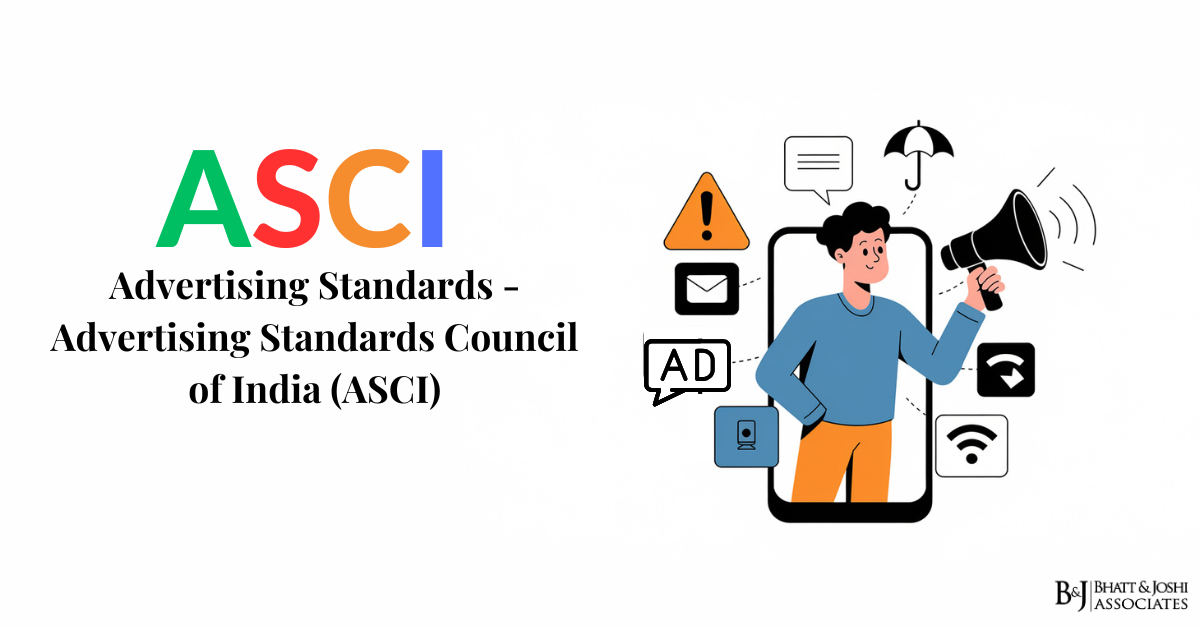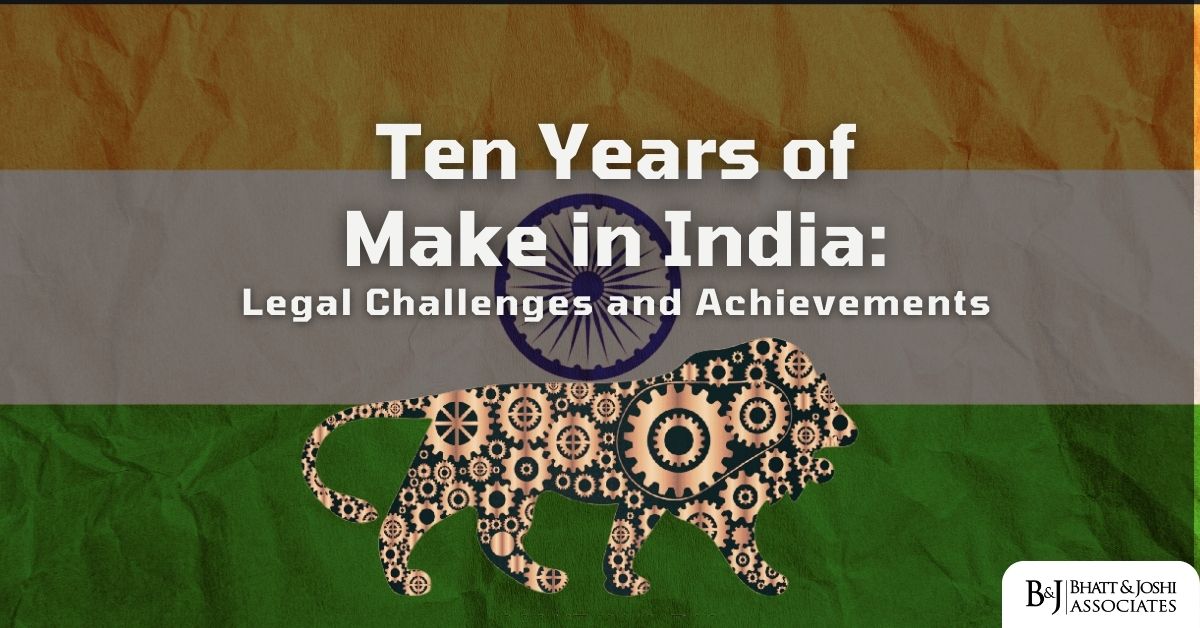Introduction
In today’s consumer-driven economy, advertising plays a pivotal role in shaping public perception and influencing buying decisions. As the advertising landscape becomes increasingly complex with the proliferation of digital media and social platforms, ensuring ethical and responsible advertising becomes crucial. The Advertising Standards Council of India (ASCI) is the self-regulatory body that oversees the advertising industry in India. Established in 1985, ASCI seeks to ensure that advertisements conform to ethical standards and do not mislead or offend consumers. Through its Code for Self-Regulation in Advertising and the framework provided by Indian law, ASCI plays a vital role in maintaining integrity and transparency in advertising practices.
This article delves into the regulatory framework governing advertising in India, focusing on ASCI’s role, the legal provisions, and relevant case laws that shape its operations.
Regulatory Framework of Advertising Standards
ASCI is primarily a self-regulatory organization, meaning it is not a statutory body but is widely recognized and followed by advertisers, media companies, and consumers alike. Its operations, however, are influenced by various laws and regulations that govern advertising in India.
- The ASCI Code for Self-Regulation in Advertising
The cornerstone of ASCI’s regulation of advertising is its Code for Self-Regulation in Advertising (ASCI Code). This code outlines the ethical principles that advertisers are expected to follow, covering issues such as truthfulness, decency, legality, and the protection of consumers from misleading advertisements.
- Clause 1 of the ASCI Code requires that all advertisements should be truthful and should not mislead the consumer, whether through exaggeration or false claims. Advertisements should provide a clear and truthful representation of the product or service being promoted.
- Clause 4 emphasizes decency in advertising, stating that no advertisement should contain any content that is offensive to the public or certain sections of society based on race, gender, caste, or religion.
- The Consumer Protection Act, 2019
The Consumer Protection Act, 2019 provides a robust framework for the protection of consumers in India, including provisions that govern advertising. Misleading advertisements are a significant concern under this Act, which defines a misleading advertisement as one that deceives consumers or provides false information about the product or service.
- Section 2(28) of the Consumer Protection Act defines “misleading advertisement” and holds advertisers accountable for false claims, misrepresentations, or omissions that could influence consumer behavior.
- Section 21 of the Act empowers the Central Consumer Protection Authority (CCPA) to take action against advertisers and order the removal of misleading advertisements. It can also impose penalties on advertisers who violate the provisions of the Act.
Case Law Reference: In Hindustan Unilever Ltd. v. Consumer Education & Research Centre (2011), the court held that misleading advertisements are a form of unfair trade practice and can be penalized under the Consumer Protection Act. The case highlighted the need for truthful representation in advertising and reinforced the role of ASCI in addressing such issues.
- The Cable Television Networks (Regulation) Act, 1995
The Cable Television Networks (Regulation) Act, 1995 also plays an essential role in the regulation of advertisements broadcasted through cable networks. Under this Act, advertisements must adhere to the Advertising Code prescribed by the Ministry of Information and Broadcasting.
- Rule 7 of the Cable Television Network Rules, 1994 states that no advertisement that violates ASCI’s guidelines or the code of ethics shall be broadcast on cable television. This effectively gives statutory recognition to the ASCI Code and its applicability to television advertisements.
Functions and Role of Advertising Standards Council of India (ASCI)
ASCI performs several critical functions in regulating the advertising industry, from reviewing complaints to issuing guidelines and ensuring compliance with its code of ethics.
- Complaint Resolution Mechanism
One of ASCI’s primary roles is the resolution of complaints regarding advertisements. ASCI provides consumers, competitors, and stakeholders with a platform to file complaints about advertisements they believe are misleading, offensive, or unethical.
- The ASCI Consumer Complaints Council (CCC): Once a complaint is filed, ASCI’s Consumer Complaints Council (CCC) reviews the advertisement in question. The council consists of independent experts and industry representatives who evaluate whether the advertisement violates the ASCI Code.
- Judgment Reference: In Colgate Palmolive (India) Ltd. v. Reckitt Benckiser (India) Ltd. (2016), ASCI was tasked with reviewing complaints regarding comparative advertising. The judgment upheld ASCI’s role in ensuring that advertisements maintain fairness, especially in cases where advertisers compare their products to those of competitors.
- Monitoring Digital Advertisements
With the rise of digital platforms, the scope of ASCI’s regulatory activities has expanded to include online advertisements. ASCI monitors digital advertisements across various platforms to ensure compliance with the ASCI Code. The organization also partners with tech companies and digital media platforms to implement mechanisms for flagging inappropriate or misleading ads.
- Partnership with Government and Statutory Bodies
ASCI works closely with government agencies and statutory bodies to ensure that advertisements comply with legal standards. For instance, ASCI has an agreement with the Food Safety and Standards Authority of India (FSSAI) to monitor food and beverage advertisements, ensuring that they adhere to the guidelines concerning health claims and nutritional standards.
Case Laws Involving Advertising Standards Council of India (ASCI)
Several landmark cases have shaped ASCI’s role in the regulation of advertising in India. Below are some notable case laws:
- Procter & Gamble Home Products v. Hindustan Unilever Ltd. (2014)
This case involved a dispute between two leading consumer goods companies over a comparative advertisement that claimed one product was superior to the other. ASCI intervened to determine whether the advertisement adhered to ethical standards and whether it provided a truthful comparison of the products.
- The court ruled in favor of ASCI’s authority to regulate comparative advertisements, emphasizing the importance of fair competition and preventing misleading comparisons in advertising.
- Dabur India Ltd. v. Emami Ltd. (2018)
This case involved misleading advertisements related to health products. The court held that ASCI’s role in regulating advertisements in the health and wellness industry was crucial, especially when false claims could harm consumer health. The court recognized ASCI as a vital body for ensuring that advertisements promoting health products were based on factual information.
ASCI’s Evolving Role in Digital Advertising
As the advertising landscape continues to evolve, particularly with the advent of social media and influencer marketing, ASCI has expanded its regulatory framework to include digital content. The organization has issued guidelines for influencers and content creators to ensure that advertisements on digital platforms are clearly identified as promotional content.
- Guidelines for Influencer Advertising (2021)
To address the growing influence of social media advertisements, ASCI introduced guidelines for influencers in 2021. These guidelines mandate that any promotional content on social media must be clearly labeled as such, ensuring transparency for consumers.
- Rule 2 of the Guidelines: Influencers must use specific labels such as #Ad, #Sponsored, or #Promotion to indicate that the content is a paid advertisement. This rule ensures that consumers are not misled into believing that the content is an organic recommendation.
- Judgment Reference: In Marico Ltd. v. Dabur India Ltd. (2021), the court upheld ASCI’s authority to regulate influencer marketing and emphasized the need for transparency in online advertisements.
Conclusion
The Advertising Standards Council of India plays a critical role in ensuring that the advertising industry in India operates ethically and responsibly. Through its self-regulatory code and partnerships with government bodies, ASCI has established itself as a trusted authority in the realm of advertising regulation. As the industry continues to evolve, especially with the rise of digital platforms, ASCI’s role will only become more significant in maintaining transparency and accountability.














